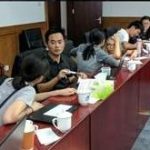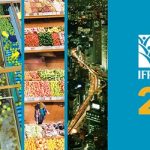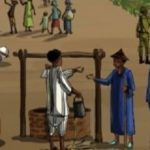By Tim Sulser — As part of the Sustainable Development Goals (SDGs), world leaders have committed to ending hunger by 2030. Yet despite unprecedented progress made in recent decades, the world is not on track to reach the goal. Current levels of spending to end hunger are inadequate. Global Futures and Strategic Foresight researchers working >> Read more
IMPACT Training at The Chinese Academy of Agricultural Sciences (CAAS)
By Daniel Mason-D'Croz and Shahnila Dunston, IFPRI— In collaboration with the Chinese Academy of Agricultural Sciences (CAAS), the International Food Policy Research Institute (IFPRI) presented a 5-day short-course on scenario analysis and economic modeling with IFPRI’s International Model for Policy Analysis of Agricultural Commodities and Trade (IMPACT). The course was hosted by CAAS in Beijing, >> Read more
Exploring the impact of alternative investments on poverty, hunger, and the environment
By Tim Sulser — The Global Futures and Strategic Foresight program recently released results of a study using quantitative foresight modeling to explore the impacts of alternative investments in agricultural research, resource management, and infrastructure on the CGIAR’s System Level Outcomes relating to poverty (SLO1), food and nutrition security (SLO2), and natural resources and ecosystem >> Read more
2017 Global Food Policy Report
We are pleased to announce that we are now going to be making a regular contribution to IFPRI’s annual flagship publication, the Global Food Policy Report, in the form of a statistical annex presenting up-to-date projections for key indicators of production, consumption, trade, and hunger from the IMPACT system of models. Click here for more >> Read more
Exploring impacts of climate and socioeconomic change in West Africa
By Daniel Mason-D'Croz and Shahnila Islam, IFPRI Climate change will likely have a negative effect on the agriculture sector in West Africa due to changing precipitation patterns and increasing temperatures. These changes can have negative impacts on food security in the region and, ultimately, the consequences of these changes will depend in part on society’s >> Read more





